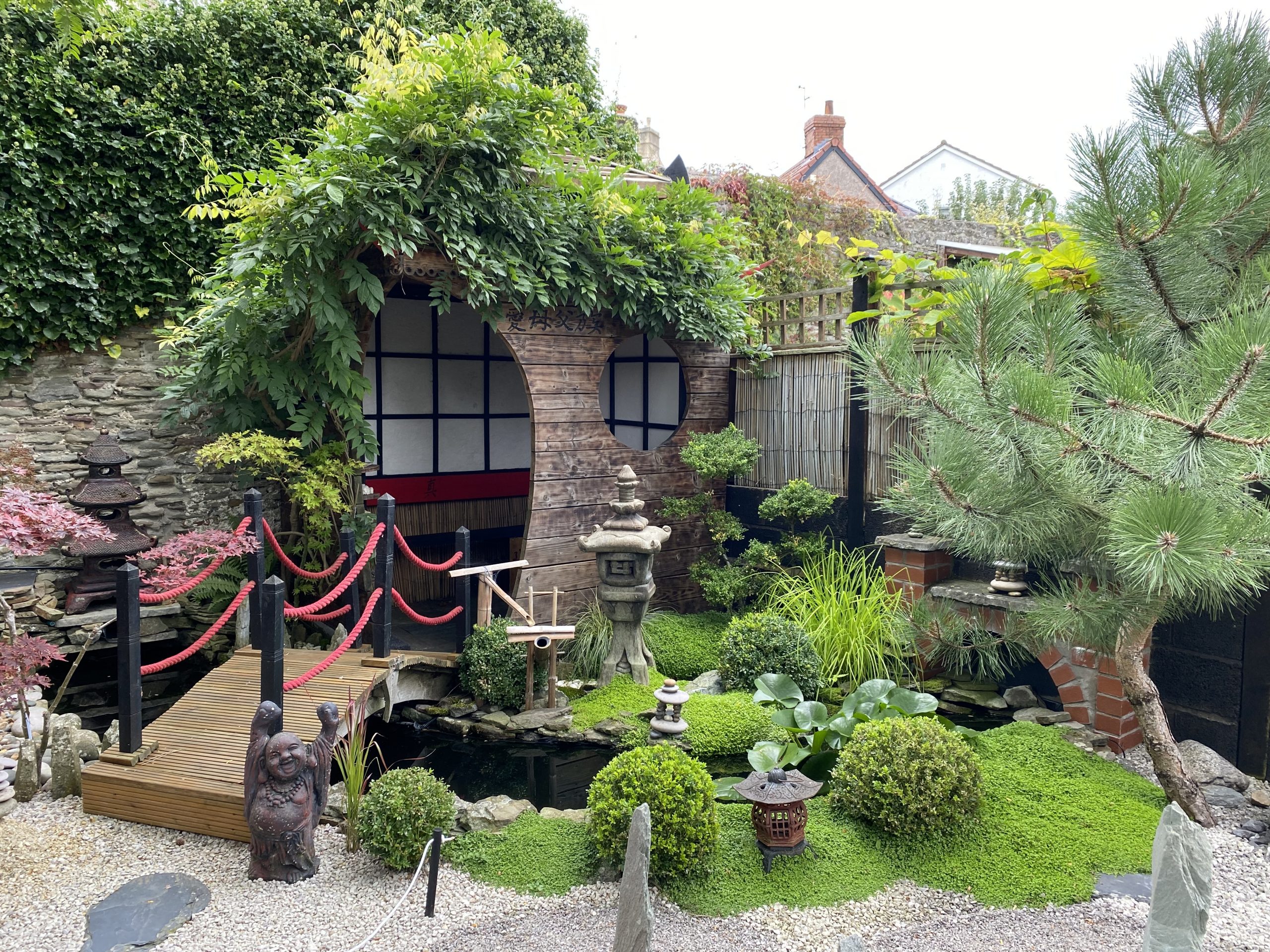The Zen of Japanese Gardens

Japanese gardens lend themselves to the same positive health benefits we experience by simply spending time in any natural environment. We know we feel good when we’re in a Japanese garden. But why?
Japanese gardens are designed to capture natural elements in their ideal form, which creates captivating and safe natural spaces for contemplation and tranquility. Many are designed specifically to offer visitors a place of respite – places where one can let their stresses fall away surrounded by the beauty of nature.
They can help improve your concentration:
Wandering through a garden renews your ability to stay focused. Researchers at the University of Melbourne found that looking at natural vegetation restores a person’s attention span (Lee, et al. 2015).
A recent study also found that groups who walked in the woods for a brief period showed a 20 percent improvement on memory tests, while those who walked down a city street did not have any considerable improvement whatsoever (Bratman, et al. 2015).
Japanese gardens allow your mind to wander freely as you observe seasonal elements. No matter the time of year, Japanese gardens offer captivating scenery such as the vibrant colours of the Japanese maples in autumn, or the reflection of the lanterns against the water during the winter.
They give your immune system a boost:
Various essential oils – emitted by plants and trees as a way to protect against germs and insects, not only make us feel refreshed. Breathing in these oils can improve our immune system health (Li et al. 2009).
Noticing how fresh the air smells as you walk through a garden enshrouded by trees or how, on a rainy day, you can draw in the rich, earthy smell of damp moss and earth that lingers in the air, is really good for you.
Feel less stress and anxiety:
Strolling through the lush greenery of a Japanese garden can have relaxing effects. Several studies at Japanese Universities found that spending time in nature significantly reduces stress levels (Park et al. 2010). Researchers at the University of Sussex found that listening to the sounds of nature, (e.g. water falling) increases a feeling of serenity. Nature sounds can also decrease a feeling of “fight or flight” (Praag et al. 2017).
As you walk through a Japanese garden, gaze at the water and stop for a moment and close your eyes. Let the sound of water soothe and relax you. Contemplate the expanse of the sand and stone elements of the garden and hear the wind rustling through the trees. Let the sounds you hear wash away stress and anxiety.
In Japanese gardens, pathways are winding and uneven to slow down your pace, and help you become immersed in the landscape. Whether it’s walking along the moss and leaves along the nobedan (stone) pathways or slowing down along the zig-zag bridge to watch the koi, the paths beneath your feet may change, shift direction, or become more rustic. Allow them to lead you into the present moment, to truly experience the benefits of what a Japanese garden has to offer.
Japanese gardens utilise elements such as ponds, streams, islands and hills to create miniature reproductions of natural scenery. The following are some of the most commonly used elements:
- Stones, Gravel and Sand
- Ponds, Streams and Waterfalls
- Islands and Bridges
- Vegetation
- Lanterns
- Water basins
- Paths
- Buildings
Explore one of the Japanese gardens that open for the National Garden Scheme and discover why they are becoming so popular. The list below includes gardens that are based almost entirely around the Japanese theme – there are many others that have Japanese gardens as part of a wider design like Kingston Lacy in Dorset and 26 Windmill Rise in Derbyshire.
23A Perry Road, Cambridgeshire
Tranquillity Haven, Powys
Beaver Lodge, Cambridgeshire
Lake End House, Bedfordshire
The Watergardens, Greater London
Musselbrook Cottage Garden, Devon (Open by arrangement)
1 Talbot Avenue, Buckinghamshire (Open by arrangement)
22 Elmsdale Road, Bedfordshire
Zen Garden at Japanese Buddhist Centre, Greater London
The Japanese Garden, Cornwall

















